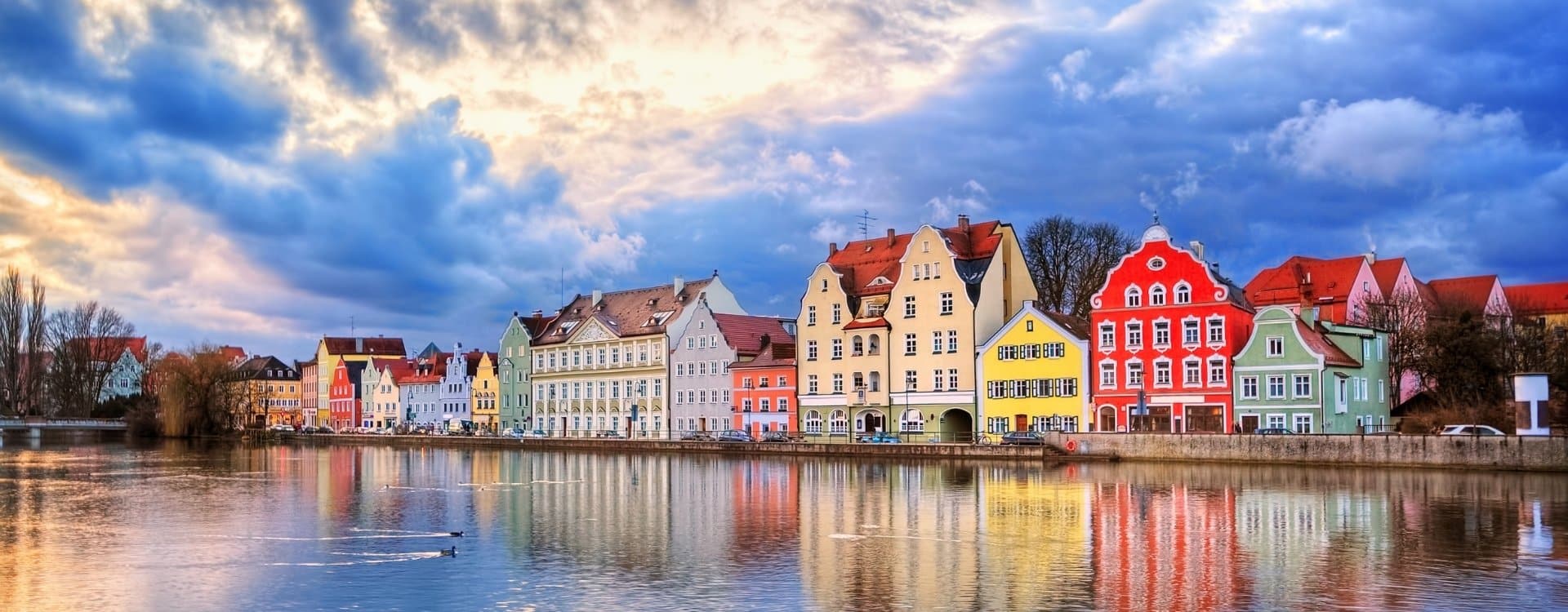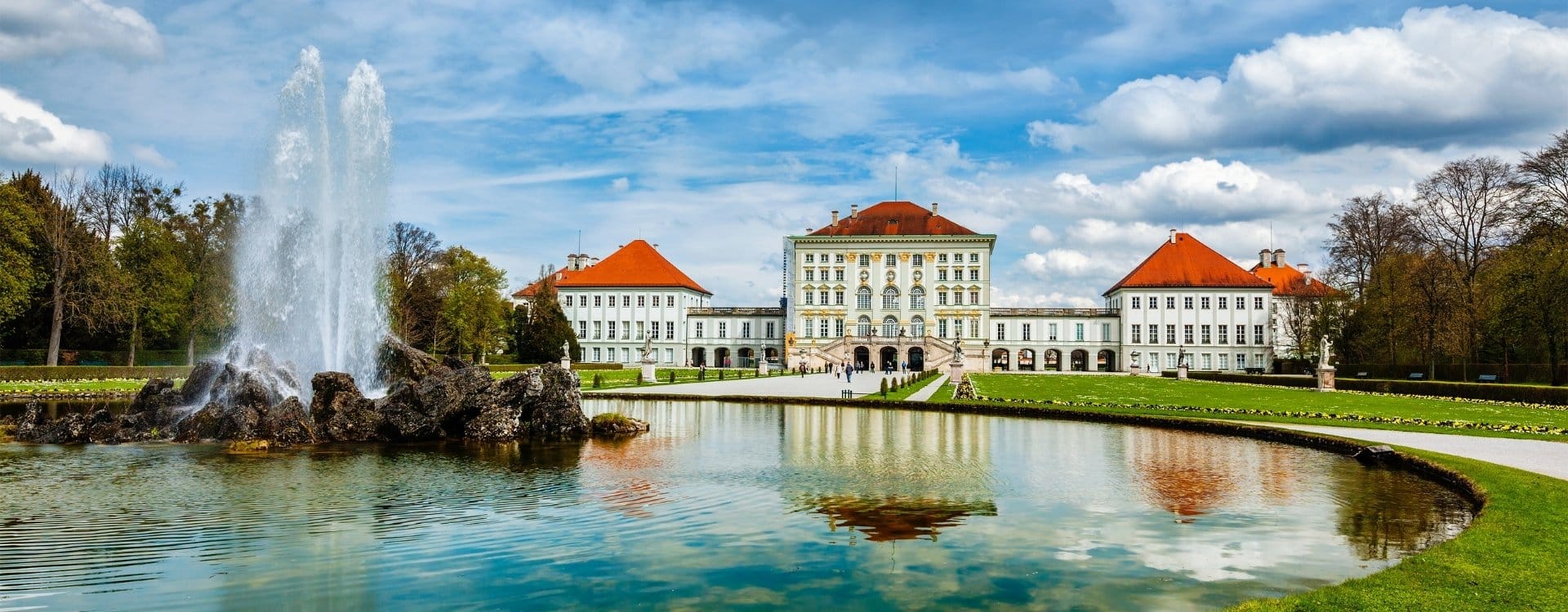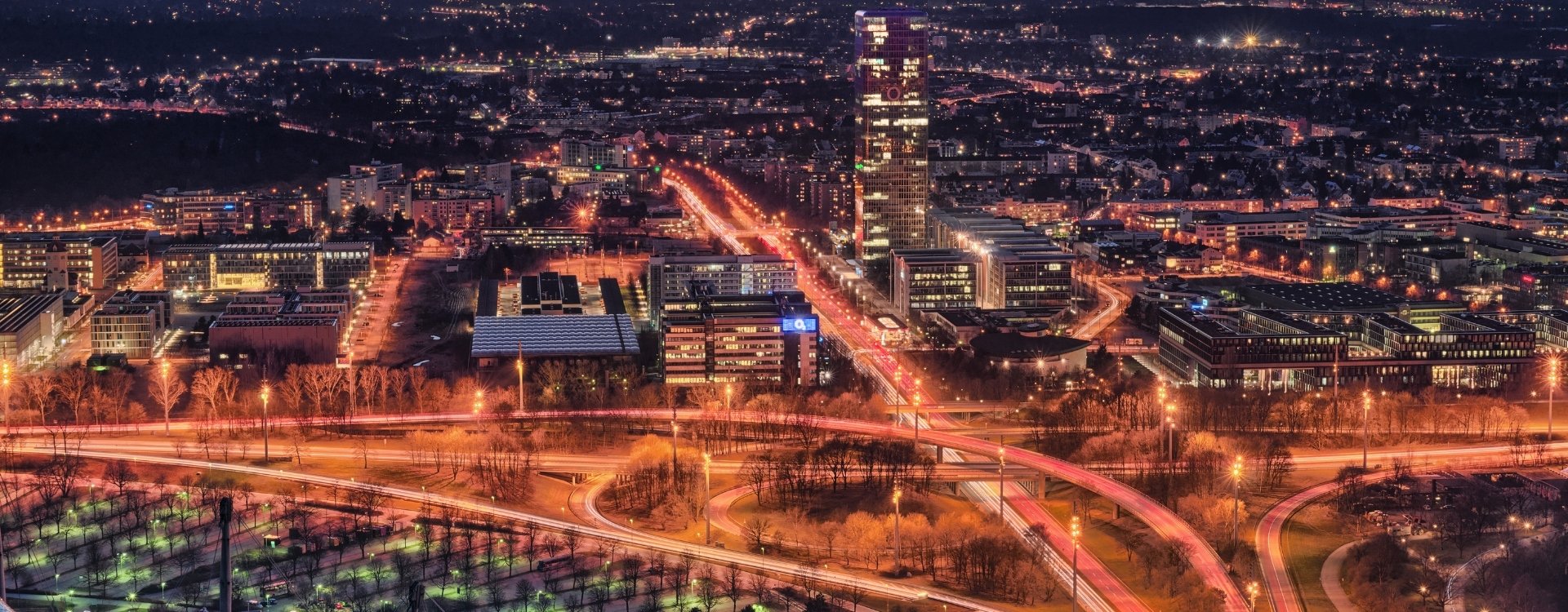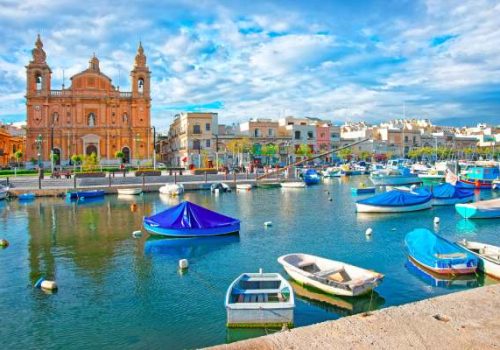Live and work in Munich
Latest jobs in Munich and Germany
- Adventure jobs, Hotel jobs, Tourism
- Bulgaria, Croatia, Egypt, Greece, Italy, Spain, Turkey
- Customer support
- Portugal
- Customer support
- Latvia
- Customer support, Marketing
- Portugal
- Hotel jobs, Tourism
- Cyprus, Greece, Spain
Munich is the third largest city in Germany, the 12th largest city in Europe and the capital of the state of Bavaria with over 1.5 million inhabitants. Munich is best known for its annual Oktoberfest. The folk festival which is held every year from the end of September and attracts millions of tourists. Also many tourists outside Germany. The city is also considered the most liveable city in Germany. This also makes it attractive to live and work in Munich. Several surveys have shown this. The city has been attracting many expats for years.
When it comes to sights, art, technology and finance, the city has a lot to offer. Read all about what it is like to live and work in Munich and take that big step!
Benefits of living and working in Munich
Munich, thanks to its location in Bavaria, also has a culture all its own. The city has something vibrant with an important and fast-growing economy and also a lot of attractions. Despite having a population of over 1.5 million, it is much quieter. Residents are quite spread out across the city.
There is little in the way of real hustle and bustle. Not even in the city centre. A village with all the conveniences of the city. Public transport, and with it the metro network, is also very well organised. The city has its own atmosphere with an aura thanks to a multicultural society, as well as a ‘’German punctuality‘’. The city has also been rated as having the highest quality of life. There are few terraces like in the Netherlands, but many ‘’biergarten‘’. So for beer, Munich is also the place to be. Once you start living and working in Munich, it is a pleasant experience mainly thanks to its fine atmosphere!
Living in Munich
Accommodation in Munich
Unfortunately, we cannot say that living in Munich is very cheap. In most cities like Hamburg and Berlin, prices are even just a little lower. For a furnished private room in the city centre, you’ll pay around €600. For a furnished studio in the city centre, you pay around €1100. Moving towards 2 and 3-bedroom flats, you’ll pay around €2000.
Around Munich’s old town are some authentic and vibrant neighbourhoods. By metro, you can quickly reach Gärtnerplatzviertel, Haidhauzen or the classic Maxvorstadt and Schwabing districts.
In the Maxvorstadt and Schwabing districts on the north side of the city centre, you can find the University of Munich and the Pinakotheken museums.
Gärtnerplatz & Glockenbachviertel
On the south side of Munich city centre lies Gärtnerplatzviertel. Fun shops and trendy bars make this district a vibrant one. It is also a draw for the creative and intellectual population. Moreover, Gärtnerplatzviertel is also an entertainment area, and thanks to its many fashion boutiques, perfect for an afternoon of shopping.

Transport in Munich
You won’t need your own car in Munich. Indeed, parking fees are very high by German standards.
With the user-friendly metro (U-Bahn), train (S-Bahn) and tram (Strassenbahn) you can get around Munich quickly and efficiently. The stations are also close together so there is no need for tired legs. The tram takes you easily to most sights in and around the city centre. The city of Munich itself (Innenraum) is one zone, the suburbs (Innenraum) are the other zones. Prices are around €11.60 for 4 zones for a single journey.
Eating in Munich
You can eat and drink absolutely delicious food in Munich. Pizzerias and Italian restaurants do especially well. There are at least more than 500 of them! But the Greek and Turkish restaurants also definitely do well. You can find a kebab shop on every street corner.
Bavarians are real carnivores. Traditional cuisine features mostly heavy and fatty dishes. Since Munich is, of course, Germany, schnitzels are extremely popular. Furthermore, numerous other meat dishes can be found.
Vegetables, in turn, are slightly less popular, but you can usually order salads separately. A real speciality of the city is Weiβwurst, white sausage. This sausage is made from finely ground veal and pork. This is traditionally eaten with sweet mustard.
Apart from all the meat, pastries are also wildly popular. On every street corner you will find a Konditorei, where you can buy pastries, cakes and other sweets.
Munich is, as we made clear, the ‘beer city of Germany’. The city has numerous Bierhalle and Biergarten, where you can drink delicious beer, often outdoors. But you can also often eat genuine Bavarian specialities, such as pork shank, roast duck, Schweinsbräten mit Semmelknödel, organ meat and stockfish.
Then there is The Viktualienmarkt, south of St Peter’s Church. A lively market where you can shop for fresh meat, fish, vegetables, fruit and spices.
Nightlife in Munich
By now, it’s clear that Munich is mostly full of bars, beer gardens and cafés. These are also open until late at night. Everywhere you will find a wide variety of beers including often a locally brewed variety. The inhabitants of Munich are incredibly and warm-hearted and almost always open for a chat in one of the atmospheric pubs. But of course, if you’re not much of a beer drinker anyway, then going out in Munich can also be done in other ways. Theatre, opera and drama are also very popular. Still, Munich’s nightlife youngsters are more likely to be found in clubs and discotheques, which you’ll find a lot in the city centre in particular. Munich really does have an absolutely fun and vibrant nightlife. There is definitely something for everyone.
The landscape and nature of Munich
There is so much greenery in Bavaria that, together with the Bohemian Forest, it is known as the ‘green roof’ of Europe. But Bavaria is also full of crystal-clear lakes and snow-capped mountain peaks.
Once summer arrives in Bavaria there is plenty to do. For example, hikers can head to Bischofsmais or Berchtesgaden with 240 kilometres of marked hiking trails and more than 29 mountain huts. If you are a cycling and mountain biking enthusiast, you can also definitely have your fill in these areas. The whole of Bavaria is full of marked cycling trails for beginners and advanced cyclists.
What not to miss in Munich
Kunstareal Munich
In the centre of Munich lies a museum district. This part of the city is called the ‘’Kunstareal Munich‘’. There are, as the name naturally suggests, countless museums within walking distance.
Englischen Garten
This is one of the world’s largest and extensive city parks… the Englischen Garten (English Garden). Many woods, trees, statues and water features give this park a special and peaceful feel. The park also features a 25-metre-high Chinese tower. The park is also home to a meeting hall, amphitheatre, Japanese tea house and Rumford House.
Zum Augustiner
A visit to Zum Ausgustiner should not be skipped anyway if you are in Munich. This restaurant cum beer house serves the famous Augustiner beer from Munich’s oldest brewery. The typical Bavarian cuisine combined with an authentic ambiance will give you the ultimate Munich feeling.
St Peter’s Church
For an insane view of the city, we can definitely recommend climbing St Peter’s Church. The church itself is already worth a visit. It was built at the end of the 12th century and has had quite a few modifications over the centuries. Unfortunately, much was also destroyed after World War II bombings.
Marienplatz
The centre’s most central square and also pedestrian area is Marienplatz. This is also where the Munich Christmas market takes place. The square is home to a golden statue of the Virgin Mary.

Healthcare in Munich
Germany has an incredibly good healthcare system. In Germany, you have a choice of many different doctors and hospitals. Long waiting lists are very rare. Most of the costs of using medical care and medication are also covered by health insurance schemes. In short, when it comes to the health system, you really are in the right place in Germany.
Purchasing health insurance in Germany is compulsory. In fact, you cannot come to work in Germany without having purchased insurance. Public health insurance is mandatory for all employees with an income below €49,500 per year. Private health insurance is only possible if you earn more than that! Once you have taken out private health insurance, it is no longer possible to switch to public health insurance.
Visa and travel insurance
A visa is not required in Germany. All that is required as an EU resident is a valid ID card or passport. A registration with the municipality where you want to live is sufficient. When registering with the municipality, it is useful to at least also bring proof of income. Otherwise, there are no legal barriers for people from within the EU.

Working in Munich
Working Conditions
Germany boasts one of the strongest economies in the world, ranking fourth globally, with Munich playing a pivotal role as a hub for finance, technology, and manufacturing. Working in Munich offers numerous career opportunities across diverse industries, including automotive, engineering, IT, and healthcare. The city’s modern infrastructure and international orientation make it a highly attractive destination for both German and international professionals.
A typical working day in Munich runs from 9 am to 5 pm, mirroring the standard German workday of eight hours. Under German labor laws, this is the average duration, and the legal maximum is a 48-hour work week. Overtime is limited by regulation, supporting a healthy work-life balance. Germany also provides an ample number of public holidays—up to 19 annually, depending on the state, which is significantly more than in many other countries. Employees in Munich also enjoy a minimum of 24 paid vacation days per year, with many companies offering additional days as a benefit, especially for senior roles.
Salary in Munich
Salaries in Munich are among the highest in Germany, reflecting both the cost of living and the city’s economic prominence. Salaries are typically discussed in gross terms (pre-tax) to cover Germany’s comprehensive social insurance contributions, which can be as high as 50% of gross income. For example, a customer service representative in Munich can expect a monthly gross salary of approximately €2,200 to €2,700, depending on experience. For those in tech, engineering, and finance, monthly gross salaries can range between €4,000 and €6,500, with senior roles often exceeding this range.
German contracts often specify additional payments, such as a 13th month bonus paid in December or split across summer and winter holidays. Senior and managerial roles may also receive a “14th month” bonus, a benefit designed to retain top talent in high-demand positions.
Cost of Living in Munich
While salaries in Munich are high, the city is also one of the most expensive in Germany. Housing costs are notably high, especially for centrally located apartments, with average rent for a one-bedroom apartment ranging from €1,200 to €1,600 per month.
Food, transportation, and leisure activities are also relatively expensive, but public transportation options are excellent, and many employers offer subsidies for monthly transit passes.
Career Growth and Professional Development
Munich provides excellent opportunities for career advancement and professional development, particularly in the automotive, finance, and technology sectors. Many companies offer in-house training programs, language courses, and mentorship opportunities. The presence of numerous multinational corporations and a thriving start-up ecosystem enables professionals to gain diverse experiences and advance in their careers. For those seeking higher education or specialized skills, Munich’s many universities and technical institutes provide a pathway for continuous learning and specialization.
Work Culture in Munich
The work culture in Munich reflects Germany’s general emphasis on efficiency, punctuality, and professionalism. Teamwork, organization, and attention to detail are highly valued in the workplace.
However, Munich also benefits from a relaxed, cosmopolitan vibe, with many international employees contributing to a diverse and inclusive environment. Networking events, both formal and informal, are common, and the city’s social scene offers opportunities to connect with colleagues outside of work.
Expat Support and Networking Opportunities
Munich is home to a large international community, and many organizations and resources are available to help expatriates integrate into the German work environment.
Networking groups like Internations, the American-German Business Club, and other expatriate organizations regularly host events that bring together professionals from all backgrounds. Munich’s international schools, bilingual services, and vibrant expatriate community make it relatively easy for newcomers to settle in and build meaningful connections.








